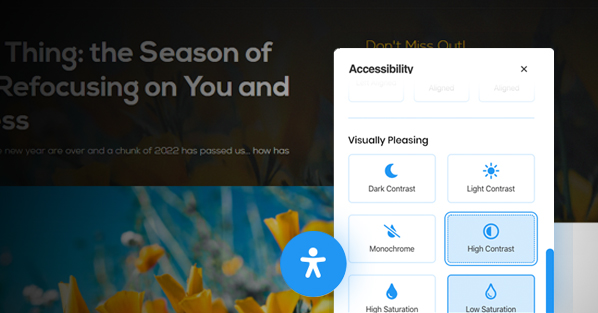The Americans with Disabilities Act (ADA), passed in 1990, has taken an official stance that websites and mobile apps should be accessible for disabled users. Your business may be at risk.
Quick Summary of the ADA compliance with websites:
- The Americans with Disabilities Act (ADA) now includes websites and mobile apps and requires certain businesses to ensure that their mobile apps and websites make accommodations for people with disabilities. Web content must be accessible to users who are deaf, or blind, as well as those who must navigate by voice, screen readers, or other assistive technologies.
- This mainly concerns organizations that fall under Title I or Title III. Organizations that operate 20 or more weeks per year with at least 15 full-time employees or organizations that fall under the category of “public accommodation”.
- If you fall into those categories and fail to create an ADA-compliant website or mobile app, your business could be open to financial liabilities, lawsuits, and damage to your brand reputation.
- ADA compliance helps more than just users who are covered by ADA including your website’s SEO. It can improve your website’s visibility on google image searches and more.
What must a website do to be ADA-Compliant?
Unfortunately, there are no clear ADA regulations or guidelines that spell out exactly what constitutes an ADA-compliant website. A Title I or ADA Title III business or organization is simply required to develop a website that offers “reasonable accessibility” to people with disabilities.
While there aren’t any clear rules, that doesn’t let businesses off the hook: they still must provide a website that is accessible to and accommodates users with disabilities.
“As far as websites go, there is no federally codified direction on how to make websites comply,”
Says David Engelhardt, a New York City-based small business attorney.
“We only know that the ADA does apply to websites based on cases such as [Gil v. Winn-Dixie].”
So what do you do to make your website ADA-compliant if there are no clear guidelines or definitions as to what that means?
What’s the Solution?
The best we can do is to demonstrate that your organization has made a good-faith effort toward accommodating users that fall under ADA protection.
There are a few ways to do this.
The first is to follow the official Web Content Accessibility Guideline (WCAG) 2.1 specifications. These guidelines provide guidance to web developers as to how they could better accommodate users and stay ADA compliant.
“The Web Content Accessibility Guidelines are part of a series of web accessibility guidelines published by the Web Accessibility Initiative of the World Wide Web Consortium, the main international standards organization for the Internet.” – Wikipedia
A business owner can have us or their developer go through the process of making sure each and every guideline is followed. A big side benefit to following these guidelines is that many of them mirror solid and simple SEO prescriptions that can help boost your site’s regular SEO.
An easy and straightforward alternative way that we found when dealing with these guidelines without investing hours of time is adding an accessibility plugin to your website. If you have a WordPress-based website we can install an accessibility plugin that will instantly offer accessibility features to your users without immediately altering the current design and setup of your site.
The plugin will make publications on your website accessible to people with cognitive impairments, perception problems, cognitive impairments, and hearing or vision impairments. If you’re interested in having something like this added to your website, give us a call at 954-680-4584 or email us here and we would be happy to help you protect your business.
With all of this being the case, I do want to make clear that we are not attorneys and do not aim to provide legal advice. Instead, we’re sharing with you what we know regarding the web design side and what you need to know regarding the systems that we can help you develop. We ask that you be sure to consult your lawyer to see if you and your business would have any liability.










